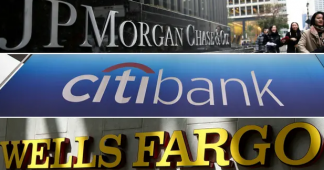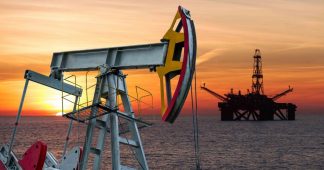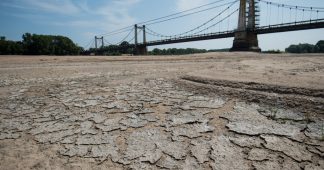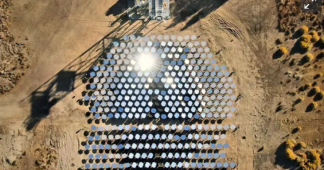With the purchase of bonds from just seven big polluters, the ECB contributed an estimated 11.2 millions tons of carbon emissions into the atmosphere, which is more than the entire annual emissions of Luxembourg. The ECB Governing Council is meeting on 4 June to discuss a review of its monetary strategy.
The breakdown of the ECB corporate bond purchases exposes that €4.4 billion went to utilities, with prominent polluters such as Engie or EON on the list of companies whose debt the ECB has been buying. Over €3.2 billion [1], with an estimated carbon footprint of almost eight million tons, went to the oil and gas industry, with bonds purchased from Shell – one of the most polluting companies on earth – Total and Eni, among others.
The ECB is one of the biggest bond purchasers in the world and the regulator of banks in the Eurozone. Any asset purchases the ECB makes have a massive influence on the fossil fuel industry and impact both Europe’s ‘green’ recovery from the health crisis and the climate emergency. The ongoing asset purchasing programme launched by the ECB in 2014 as a response to the Euro crisis proved to be substantially destructive to climate efforts. Analysis from the London School of Economics demonstrated, for example, that although utilities make up only 5% of Euro-denominated corporate bonds, they accounted for 25% of ECB purchases [2].
| “The ECB and other central banks must change their ways. The assets the ECB purchased as a response to the COVID-19 pandemic support business as usual and contribute to the climate emergency. As the climate crisis continues to escalate, we can’t afford any more public money going to fossil fuels. The ECB must exclude fossil fuels and other emission-intensive assets from future purchases.” Adam Pawloff, Greenpeace climate and energy campaigner |
Greenpeace calls on the ECB to exclude fossil fuel companies from quantitative easing, i.e. purchasing securities, largely bonds, to increase the money supply, and lower interest rates in the Eurozone. The ECB’s monetary policy review must lead to the inclusion of climate risk throughout ECB operations, whether by the exclusion of fossil fuels from collateral that banks are allowed to give the ECB when they borrow money, or by increasing the amount capital banks are required to hold when they lend money to fossil fuel companies.
– ends –
Notes:
[1] The € 3.2 billion that went to bonds of the oil and gas industry includes companies in the oil and gas supply chain, such as Schlumberger. In the detailed analysis we have focused specifically on integrated oil and gas companies.
Contacts:
Adam Pawloff – Greenpeace climate and energy campaigner: +43 650 3722524, adam.pawloff@greenpeace.org
Mihaela Bogeljić – Greenpeace communications: +385 92 2929 265, mihaela.bogeljic@greenpeace.org
This press comment is also available on: www.greenpeace.eu
For breaking news and comment on EU affairs: www.twitter.com/GreenpeaceEU
Greenpeace is an independent global campaigning organisation that acts to change attitudes and behaviour, to protect and conserve the environment and to promote peace. We do not accept donations from governments, the European Union, businesses or political parties. We have over three million supporters and offices in more than 55 countries.
EU Transparency Register: 9832909575-41











